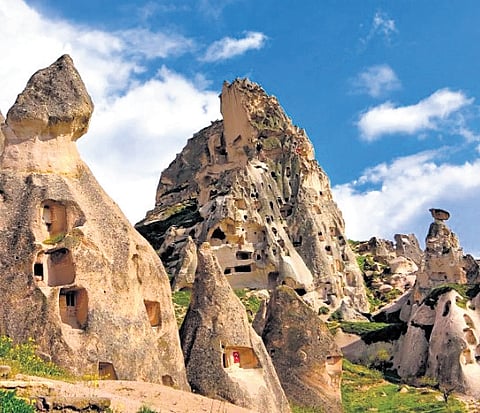Birthplace of Western philosophy
Not many people know about the birthplace of Western philosophy and science. This is a territory in Western Anatolia (modern-day Turkey) called Ionia. It took its name from Ion—the legendary king of Athens. In the 7th century BC, 12 city-states of this region came together to form Ionia. It was part of the Greek Empire but was adjacent to Asia and was called Asia Minor. The great poet Homer came from this region.
The Temple of Artemis, one of the seven wonders of the ancient world, is also located here. Ionian philosophy began with wonder at looking at the world. The first question that they tackled was the problem of substance—what is the world made up of? This happened around 650 BC, the same time that Gautama Buddha was preaching in India. Indian philosophy had developed a lot by this time, but philosophy was just starting in the Western world. Until this time, the Greeks believed the universe to have been created by gods who were envisioned as superpowered immortal beings who had made everything the way it was.
Thales of Ionia is the first recorded thinker who thought this may not be true. He did not deny the existence of gods but suggested that perhaps the world worked according to naturally occurring patterns. There might be a natural first-cause, which was the underlying form of all things.
Thales considered water to be the substance that makes up the entire world. Life began in water, and water also sustains life. Later, Darwin also said that all life has marine origin. When water evaporates, it produces air, which sustains our breathing.
When water solidifies, it makes the earth. When water rarifies and rises, the clouds clash among themselves, and fire is produced. The fire that falls to earth is called lightning, while the one that stays in the sky becomes the Sun and Moon.
This was crude and rudimentary thinking, but it had the seeds of materialism. After Thales, his disciple Anaximander proposed that in the beginning of the universe, there was something indeterminate.
He called it an unformed matter. From this, all the different things emerged, like Water, Fire, Air, Earth, and Space. The same elements were proposed by the Indian philosophy of Sankhya.
Another philosopher, Anaximenes, said that matter itself cannot change from indeterminate to determinate. He said the indeterminate substance was not water but air. When the air became rare, it formed space. When it got heated, it formed the Sun. When it cooled, it condensed and formed water. When the water froze, it formed the earth.
These men are now regarded as the first scientists or proto-scientists. They laid the foundations for scientific and philosophical inquiry that would be developed later by Pythagoras, Socrates, Plato and Aristotle.

